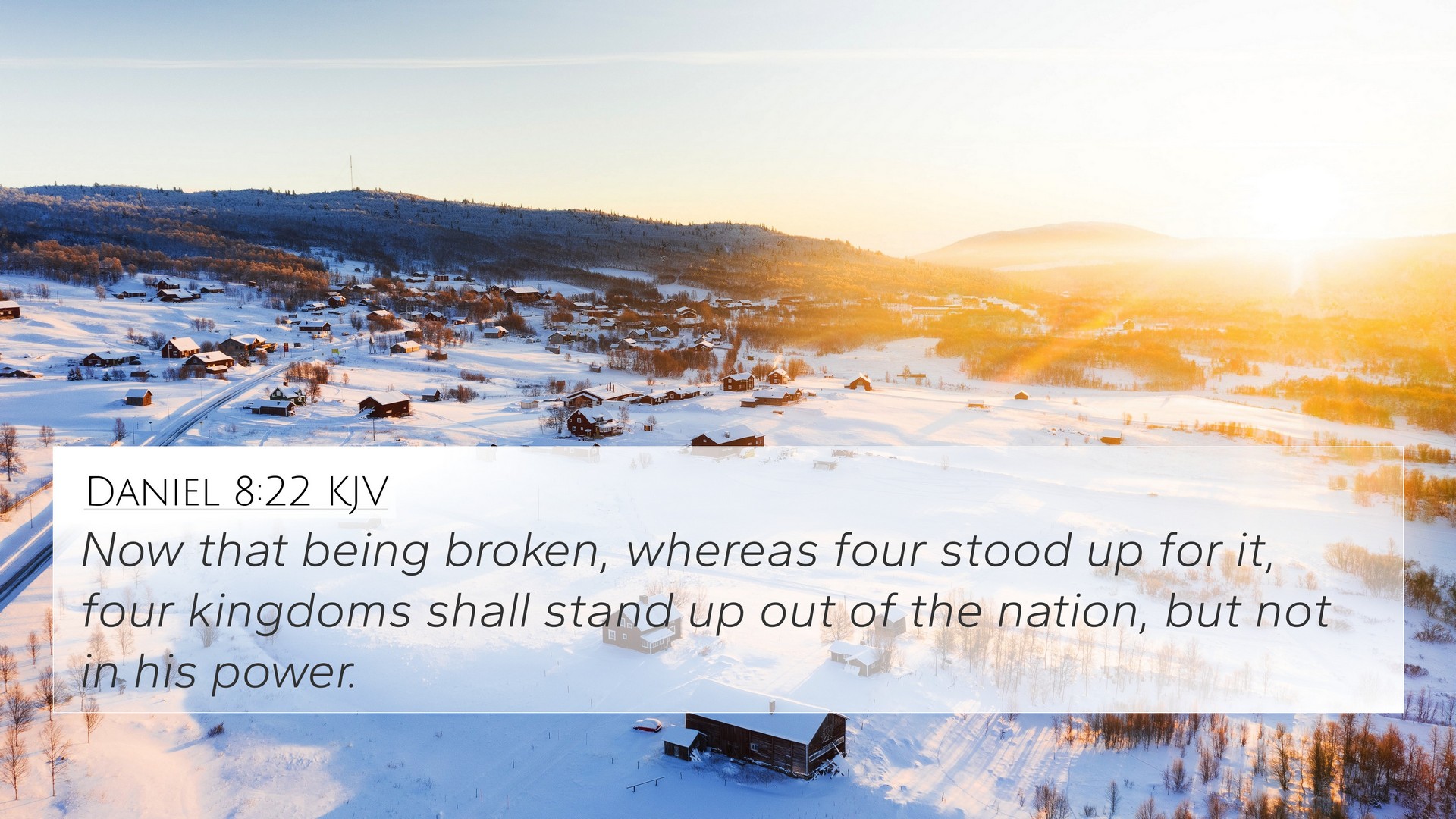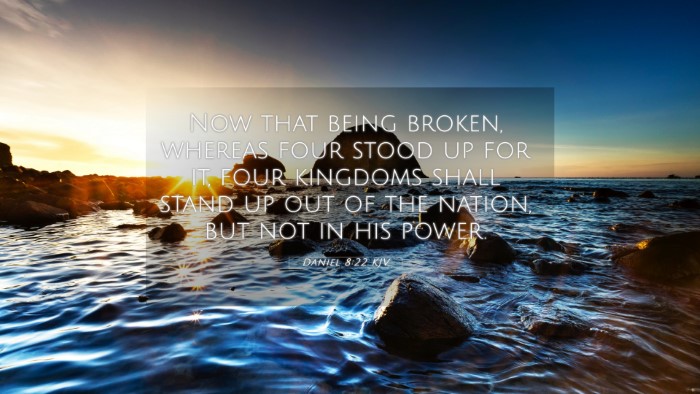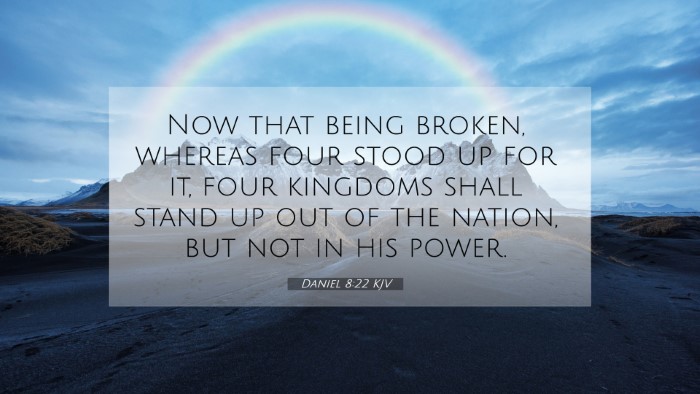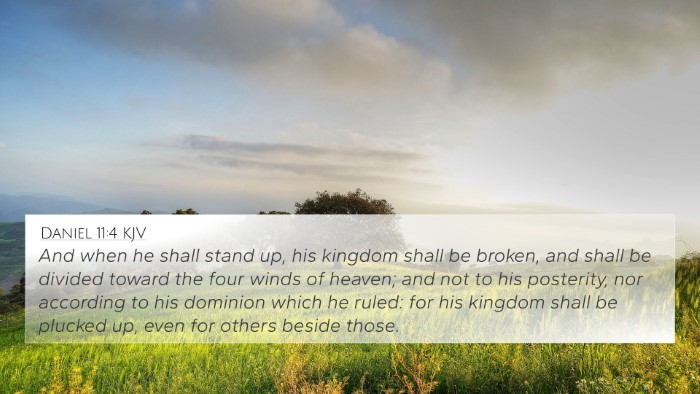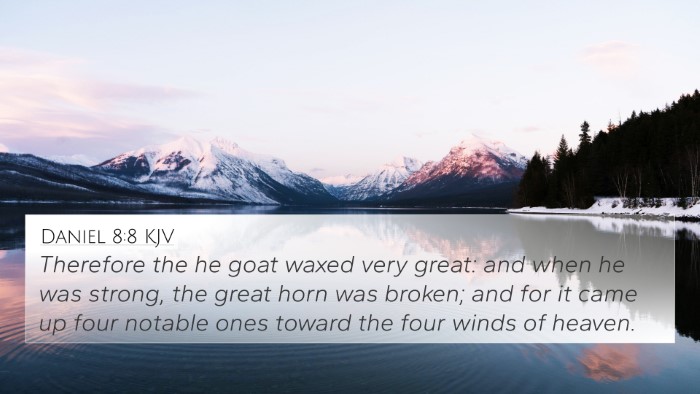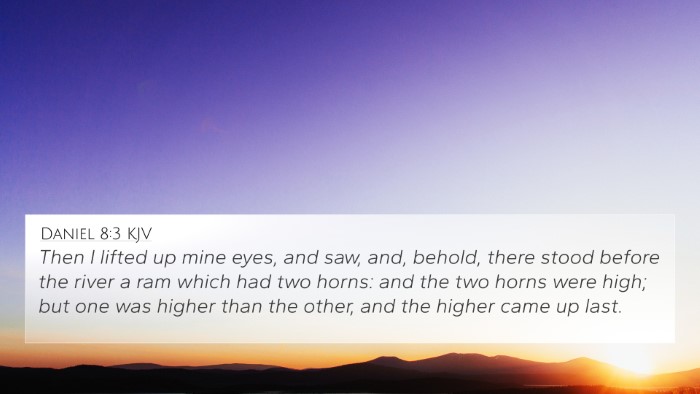Understanding Daniel 8:22
Daniel 8:22 states: "And the broken horn, and the four that stood up in its place, are four kingdoms that shall arise out of that nation, but not with his power." This verse encapsulates a significant prophecy related to the vision of the ram and the goat, symbolizing the rise and fall of kingdoms. Through a consolidated interpretation from respected public domain commentaries, we delve into the implications and meanings behind this scripture.
Summary of Insights
The interpretation of Daniel 8:22 reveals various layers of historical and prophetic significance:
- Kingdom Representation: The "broken horn" symbolizes the fall of a mighty ruler (historically linked to Alexander the Great), and the "four kingdoms" generally refer to the Hellenistic states that succeeded his empire.
- Lack of Power: The phrase "but not with his power" indicates that these kingdoms, while they would arise from his reign, would not possess the same strength or influence that Alexander had, reflecting a notable decrease in imperial greatness.
- Symbolism in Prophecy: This vision serves as a precursor to understanding the overarching theme of divine sovereignty as it operates through historical events.
Comparative Bible Verse Analysis
Several Bible verses resonate with the themes presented in Daniel 8:22, providing deeper insight into the interconnectedness of scripture:
- Revelation 13:7: Relates to the rise of kingdoms and powers that are allowed to operate within God’s prophetic timeline.
- Daniel 7:6: Offers a view of the beast system akin to the empires symbolized in Daniel’s visions.
- 2 Thessalonians 2:7-8: Discusses the revealing of the man of sin, echoing themes of power and authority in the temporal realm.
- Isaiah 14:12-15: Touches on the fall of mighty leaders, serving as a parallel to the broken horn in the prophecy.
- Matthew 24:7: Delves into the nature of upheaval and conflict among nations, mirroring the tumultuous transitions described in Daniel.
- Micah 5:5: Speaks to issues of security in the face of encroaching powers, highlighting God's providence.
- Psalms 146:3: Reminds believers not to put their trust in princes, connecting the idea of trusting in divine authority versus human rulers.
Tools for Bible Cross-Referencing
For those interested in improving their understanding through Bible cross-references, here are some suggested methods and tools:
- Bible Concordance: Utilize a concordance to find related verses and deepen the comparative study of connections.
- Online Bible Reference Resources: Websites and apps dedicated to cross-reference guides can help identify scripture relationships quickly.
- Cross-reference Bible study systems: Engage with study Bibles that provide footnotes and adjacent verses for richer theological exploration.
- Bible Chain References: Follow thematic chains of verses that provide insight into broader biblical narratives and doctrines.
Inter-Biblical Dialogue
This verse encourages thoughtful examination of how different passages speak to each other. The exercise of identifying connections between Old and New Testament scriptures illuminates the cohesive message of redemption and God's sovereignty throughout scripture.
For example, exploring how themes in Daniel resonate with New Testament teachings on the kingdoms of this world helps deepen the understanding of God’s overarching plan.
Conclusion
In summary, Daniel 8:22 serves as a vital touchpoint within the prophetic literature of the Bible, delineating the rise and fall of empires in a manner that underscores God’s control over human history. By engaging with cross-references and understanding scripture connections, believers can enrich their study and application of these ancient texts.
